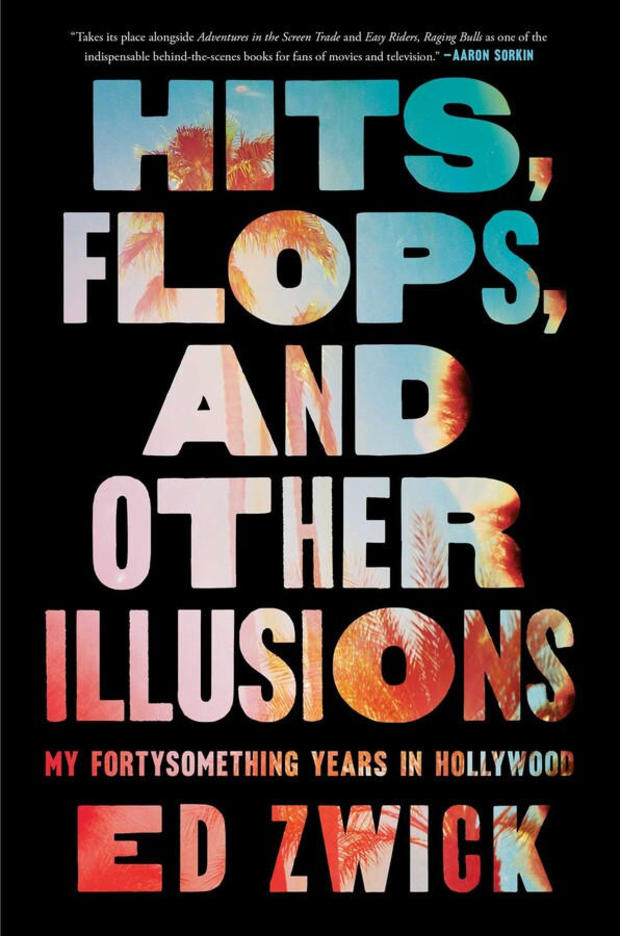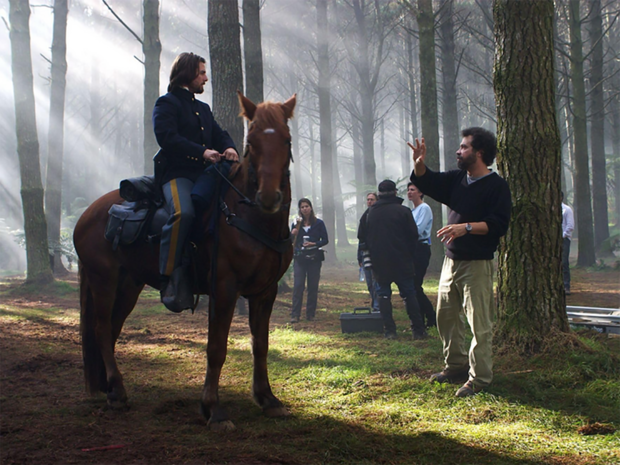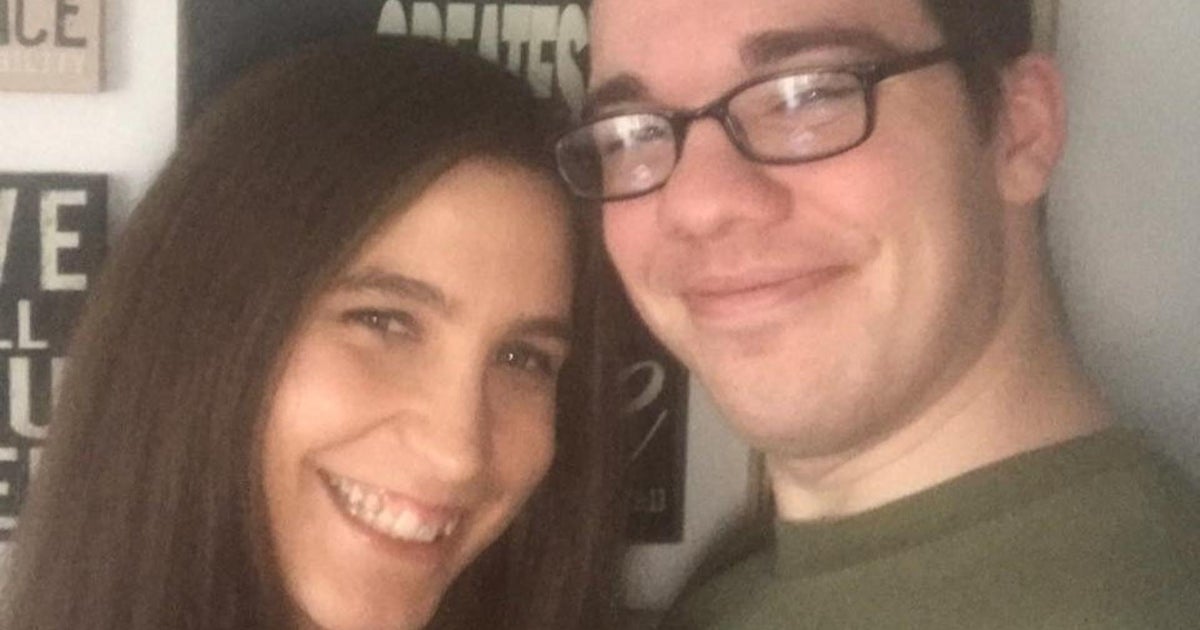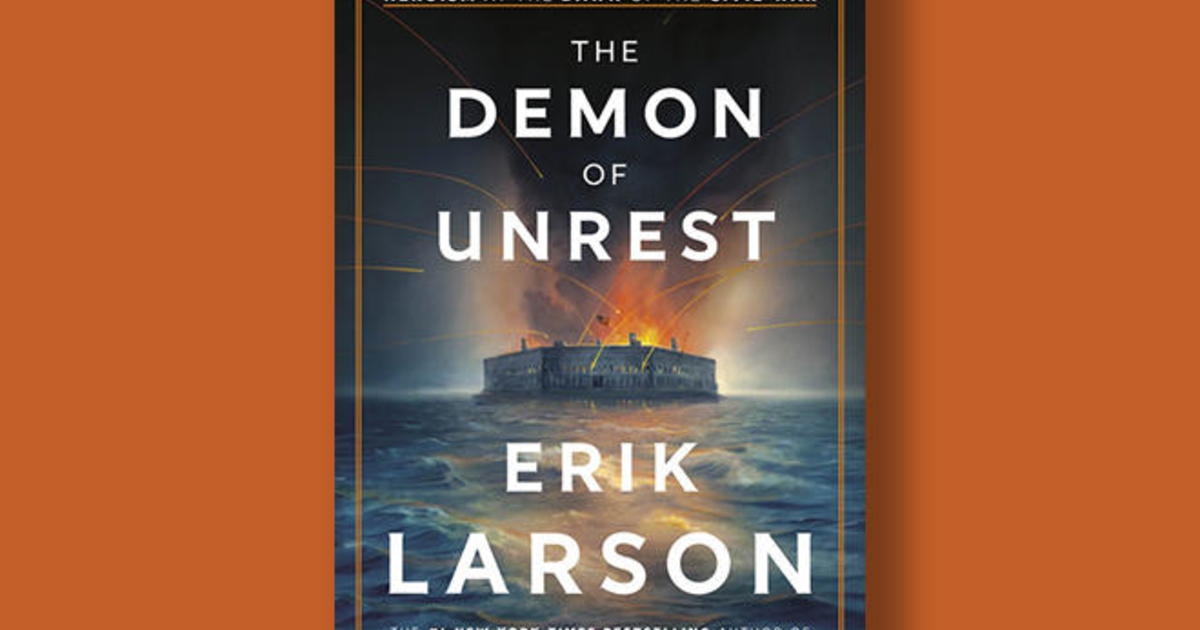"Hits, Flops and Other Illusions": Director Ed Zwick on a life in Hollywood
If you were making a movie about Ed Zwick, the Oscar-winning producer and director of various huge films, Act 1 would definitely feature the American Film Institute in Los Angeles as a backdrop. That is where, back in the 1970s, a twenty-something Zwick realized he was out of his depth and had to quickly start learning from his peers.
"It's very hands on; it's very deep-end-of-the pool-right-away," he said. "And your other students, or fellows as we are called here, will in fact become your own teachers."
That's something he hasn't stopped doing over his 40-plus-year career. During that time he's directed some of Hollywood's brightest: Denzel Washington ("Glory," "Courage Under Fire," "The Siege"), Tom Cruise ("The Last Samurai"), Brad Pitt ("Legends of the Fall"), Leonardo DiCaprio ("Blood Diamond"), Daniel Craig ("Defiance"), and almost Julia Roberts, who'd agreed to star in "Shakespeare In Love" before quitting without a word, shutting down the film for years.
It's all recounted in Zwick's new book, "Hits, Flops and Other Illusions" (Gallery Books) – the good, the bad and the ugly of working in Hollywood.
"It's a crucible," Zwick said of filmmaking. "And in a crucible, among artists things fulminate. And there's actually something beautiful about that and often something very good comes of that. But, I wanted to tell it as it was."
Zwick and his producing partner, Marshall Herskovitz, have been in that crucible since the two met as students at AFI, and formed what they call the longest partnership in Hollywood history.
"We love to make epic films, big films," said Herskovitz. "But we also believe that people can achieve the epic in normal life."
Which is what they tried to achieve with their first TV series, "thirtysomething." They didn't think it would last one season, but it went on for four, and won 13 Emmys.
Zwick said, "We were really interested in ambivalence, and the ambivalence of being in a marriage, the ambivalence of being in your job, and you wanna just screw around but you have to work hard. All the contradictions of life. That upset people a lot. People often wanted to have just a very straight-up-and-down depiction of life. But that's not what life is."
While making "thirtysomething," Zwick got his hands on a script about a group of Black soldiers from Massachusetts during the Civil War. "Glory" was a sensation.
But battles on screen were matched by battles behind the scenes with, of all people, Matthew Broderick's mother, whom Zwick says fought for the director to enlarge the role her son was playing, that of the white leader of the African American regiment. It was an early lesson for Zwick in when to compromise, and when to hold your ground.
When asked about navigating the world as a creative and learning when to fight for something and when to realize it's not worth it, Zwick replied, "I don't know if this is fit for CBS television, but there's a poem by e.e. cummings. And the last line of the poem is: There is some s**t I will not eat. But that also suggests that there's a world of s**t that he will eat. And having to make that decision is really crucial."
Herskovitz said of Zwick's films, "People cry in those movies. They are affected by the movie. They remember the movie. But in order to give a profound experience, you have to put a lot of things together. And I think that's what Ed does so brilliantly. You have to have a great story, you have to have an amazing sense of casting. Then, you have to know how to deal with these very special people who are gonna go out there and be the face of this movie. And I think in the book he very eloquently talks about the different ways you have to handle different people."
If the film about Ed Zwick has a villain, it might be Harvey Weinstein, who ended up buying the "Shakespeare in Love" script that Zwick had so lovingly developed, then kept him from getting to the microphone on the Oscar stage when it won best picture.
Watch: Ed Zwick barely gets a word in on the Oscar stage:
"Only in Hollywood can you end up feeling bad about something you're supposed to feel really, really good about," Zwick said. "But it turned out to be actually very important for me later. It wasn't about fairness, necessarily. It was about hard work and knowing what you've done, and then moving on, that you're gonna get knocked down. There is a cruelty in this business that you have to accept in terms of the vagaries of what happens. And what do you do then? Do you get up? And can you keep going?"
READ AN EXCERPT: "Hits, Flops, and Other Illusions" by Ed Zwick
The award-winning director-producer recounts four tempestuous decades in Hollywood, which included a fake TV newscast in which he blew up Charleston, S.C.
For more info:
- "Hits, Flops, and Other Illusions: My Fortysomething Years in Hollywood" by Ed Zwick (Gallery Books), in Hardcover, eBook and Audio formats, available via Amazon, Barnes & Noble and Bookshop.org
Story produced by Anthony Laudato. Editor: Remington Korper.





